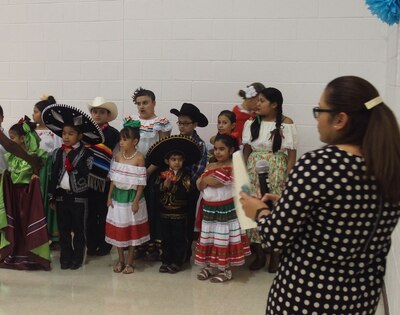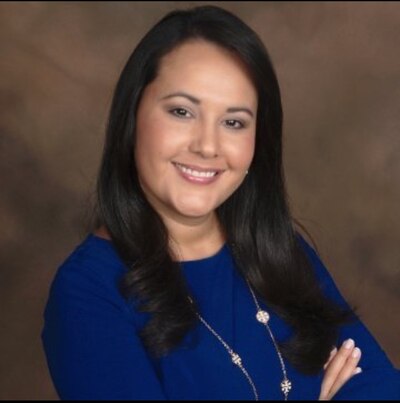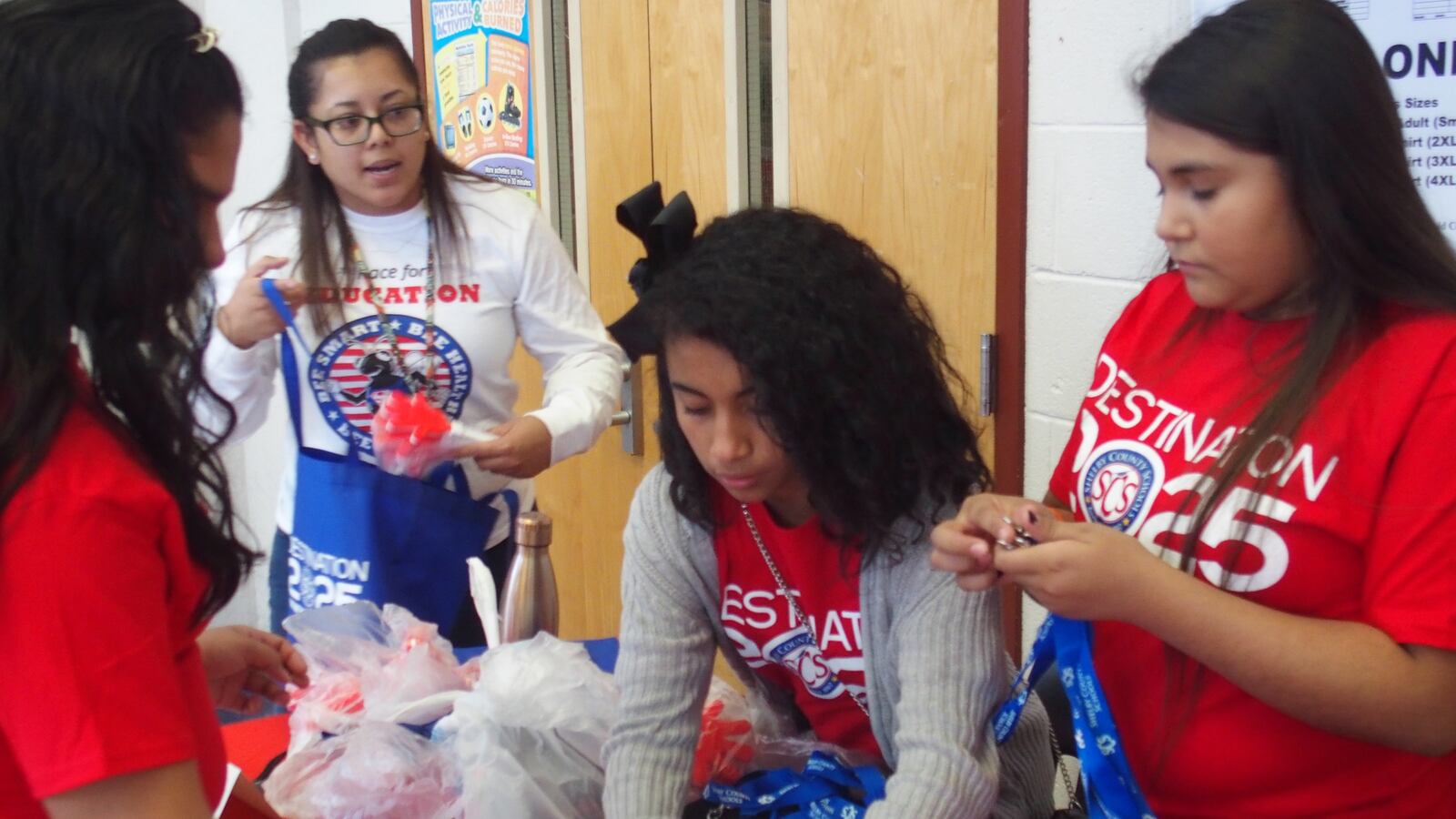Growing up in Memphis, Talia Palacio started building bridges across cultures at an early age.
At the urging of her Spanish professor mother, she spoke Spanish at home and learned English at school. In school, Palacio shared Panamanian food and traditions with her classmates.

She went on to become a teacher in Memphis and Nashville, eventually returning to Shelby County Schools as director of the state’s only bilingual program at Treadwell Elementary, which is more than a third Hispanic.
Now Palacio is the point person for the district’s efforts to connect with Hispanic parents, many of whom speak little English. The investment has been a long time coming for a city with a growing Hispanic population and for a school system that has struggled to meet their needs. Last year, the U.S. Department of Education launched an investigation into allegations that Shelby County Schools has been turning away newly arrived students.
Palacio took her new job in July amid a national struggle over immigration, where differing visions for undocumented residents range from building a wall to providing a pathway to citizenship. She appreciates how Tennessee’s largest school district is seeking to welcome Hispanic families.
“I can see how we’ve become more conscientious when addressing matters pertaining to our multilingual families,” Palacio said. “We want all of our families, students and teachers and staff to feel supported, all while being more culturally aware.”

With her background, Palacio was natural choice to become the district’s new bilingual communications analyst, said Natalia Powers, a Latina herself who joined Shelby County Schools last year as its director of communications. Powers has been a key player in engaging more thoughtfully with Hispanic families.
“The community already knew her. It was kind of a no-brainer,” Powers said of hiring Palacio. “Anything we’re doing has a Spanish outlet or arm.”
Palacio’s main role is to support principals and school-based staff in how they communicate with Hispanic families. She spearheaded a survey during registration last summer to learn how those parents prefer to receive district communication. The result was a new Twitter account and a news website in Spanish, and she’s working on a regular show for Shelby County Schools’ radio station.
She also planned this month’s Hispanic Heritage Month celebration at Hickory Ridge Middle School. Hundreds of families turned out to meet community organizations and experience cultural dances and food. And during a recent parent session on optional schools, Palacio led an impromptu mini-session in another room for the Spanish-speaking parents.
The Memphis district has more than 13,000 students who speak primarily Spanish at home, or about 12 percent of the student population.
The key to reaching these families, especially newcomer families, is to be out in the community, rather than waiting for questions, Powers said.
“They just don’t know,” she said. “Not that they don’t want to hear about opportunities. They are learning how this country operates.”
Palacio has been working with principals at schools with a higher-than-average population of Hispanic students. Those include Jackson Elementary, Ridgeway High, Peabody Elementary, Craigmont Middle and Craigmont High.
Principals are up for the challenge, she said, but need better tools and direction. “They take ownership. They’re invested and they want parents to hear their voices,” Palacio said.
Her availability has been a godsend to principals like Cedric Smith of Hickory Ridge Middle, where almost a fifth of the student population is Hispanic. Previously, he would call random Spanish-speaking district employees for help in translating parent materials or pointing parents to community resources. Now, he has a dedicated specialist to call on, which means he spends less time chasing information that’s vital for his school’s parents.
“Everything we do is in English and Spanish,” said Smith, whose school also offers four adult classes for English as a Second Language. “Having a contact person, especially when you have a large Hispanic population to know the resources parents can receive … I think it’ll make a huge difference.”
Though the number of bilingual employees has increased in Shelby County Schools, the hiring of Palacio is different because she represents a district-wide commitment.
“When it comes to Hispanic outreach, I feel like schools are working in silos,” said Yesenia Ubaldo, a teacher and family and school support specialist for eight years.
Now, the district is “more proactive,” she said. “To be able to have access to someone who will have direct contact is wonderful.”

Ubaldo notes a shift in Memphis’ Hispanic population in recent decades. A lot of immigrant men used to arrive alone; now there are more families. And compared to other parts of the country with significant Hispanic populations, Memphis has more first-generation families who do not speak English, said Luis Anaya, national sales manager of Radio Ambiente, a local Spanish station.
Palacio coordinates ads on the station to reach such parents, and she plans to make more school announcements on the airwaves too, all to help families navigate the array of tasks involved in having a child in the Shelby County Schools.
“They need to be vaccinated, they need to fill out forms, they need to bring their address, all those little things,” Anaya said. “We need to inform them and we are being helpful addressing through our broadcast. Because in the past, I’ve seen Shelby County having trouble to get that information to the Hispanic community.”
Anaya recently helped promote the district’s Newcomer International Center for high school students who are newly arriving from mostly Spanish-speaking countries. The station hosted a live DJ event at Wooddale High School and invited parents to learn more about the new program.
The center has 26 students so far but needs to connect to more parents to reach its capacity of 100. It’s one of the reasons that Palacio was hired in the first place.
“The families are learning and buying in,” Palacio said. “It makes a difference to see we’re here in the community.”

